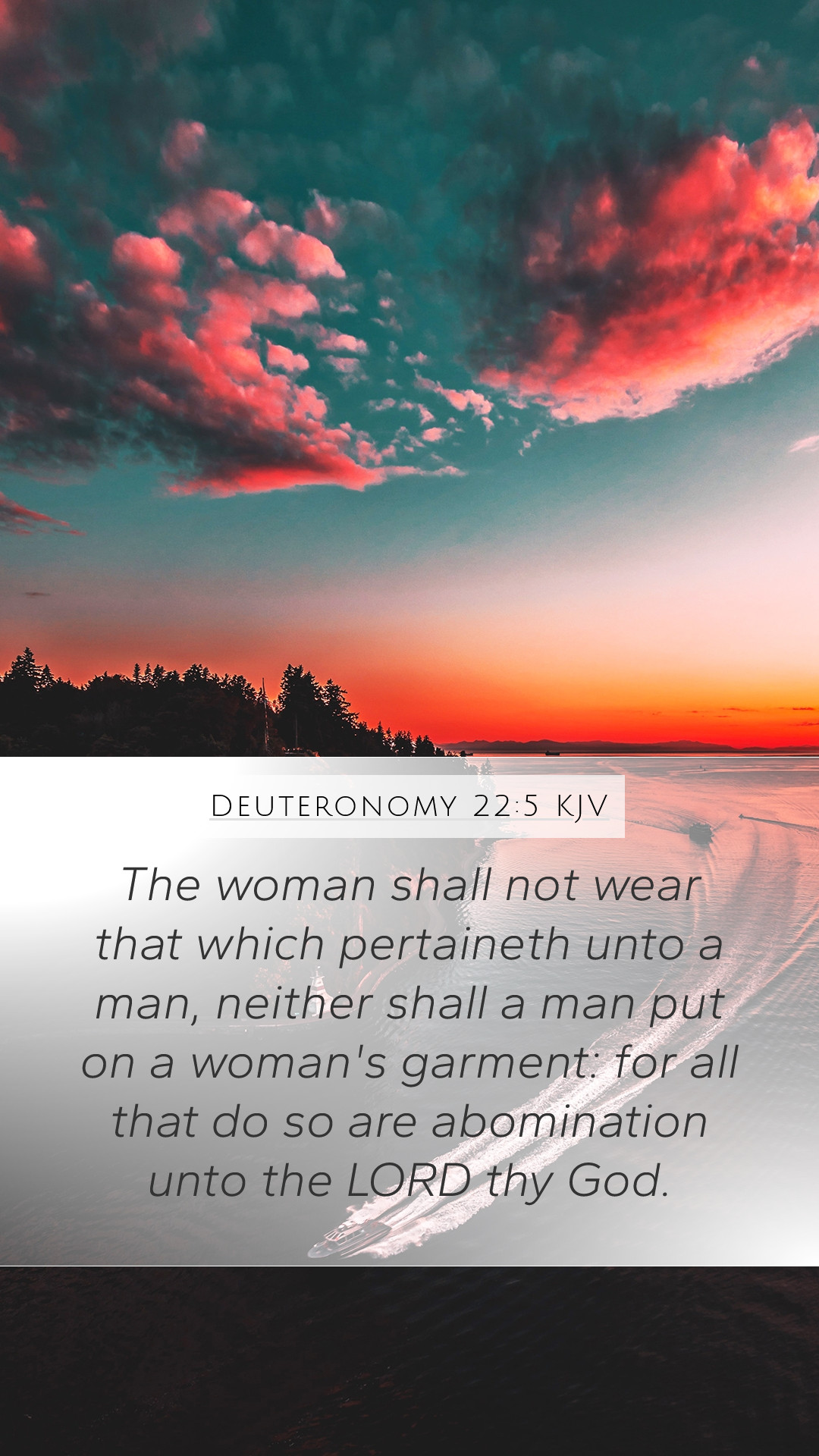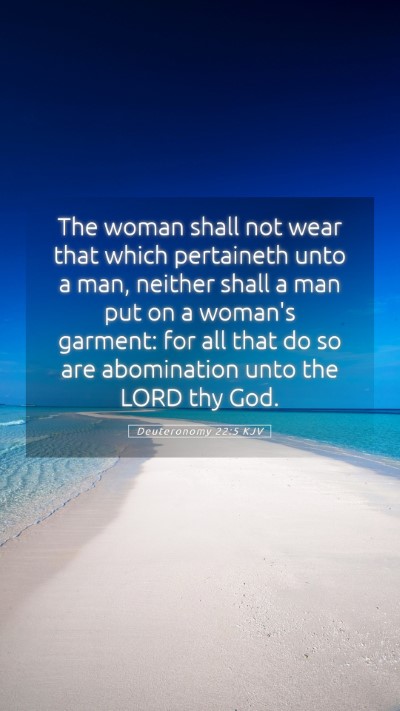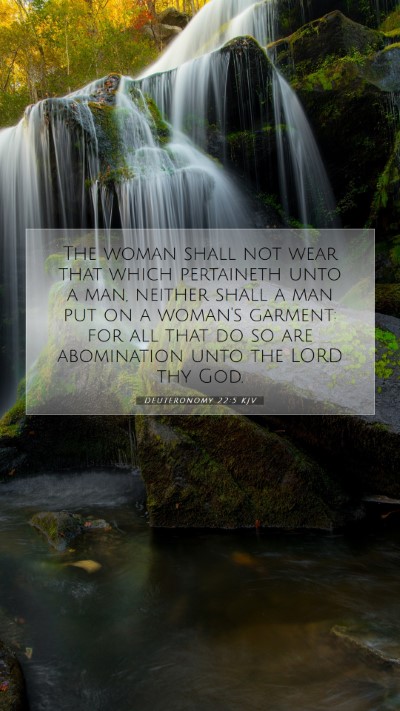Understanding Deuteronomy 22:5
Bible Verse: "A woman shall not wear a man’s garment, nor shall a man put on a woman’s cloak, for whoever does these things is an abomination to the Lord your God." (Deuteronomy 22:5)
Overview of Deuteronomy 22:5
This verse addresses the issue of gender distinctions through clothing. It reflects the broader biblical principle of maintaining the natural order created by God. The prohibition against cross-dressing is seen as a way to preserve the distinction between genders, which has theological and cultural implications.
Bible Verse Meanings and Commentary
The significance of this verse is deeply rooted in the understanding of God's design for gender roles. Various public domain commentaries provide insights into its meaning:
-
Matthew Henry’s Commentary:
Henry emphasizes that the verse serves to uphold the differences established by God between men and women. He argues that such distinctions are essential for social order and reflect God's created intent.
-
Adam Clarke’s Commentary:
Clarke highlights the cultural context of the ancient Hebrew customs regarding clothing. He explains that this prohibition extends beyond mere garments; it serves as a divine directive to maintain the sanctity of gender roles within society.
-
Albert Barnes’ Notes:
Barnes discusses the broader moral principles behind this verse, suggesting that it calls for a respect for God's design in creation. He notes that the act of cross-dressing can lead to confusion in societal roles and disrupt the family structure ordained by God.
Theological Implications
This verse also touches on several theological implications:
- Divine Design: It affirms that God created distinct roles and identities for men and women.
- Abomination to God: The term "abomination" underscores the seriousness with which God views violations of His intended order.
- Social Order: It reflects the importance of maintaining social norms that honor God's creation.
Application of Deuteronomy 22:5 in Daily Life
Understanding Scripture and applying it effectively in our lives can be challenging. Here are a few application points:
- Consider how societal norms might challenge or affirm biblical principles regarding gender.
- Reflect on the implications of clothing choices and what they signify about one's identity and values.
- Engage in discussions about gender roles in various settings—family, church, and community—to clarify biblical teachings.
Cross References
This passage can be related to several other scriptures that reinforce the idea of gender distinction and God’s creative order:
- 1 Corinthians 11:14-15: Discusses natural distinctions within gender roles.
- Genesis 1:27: Affirms that God created humanity in His image, male and female He created them.
- Romans 1:26-27: Addresses behaviors that go against God's design for sexuality and gender.
Conclusion
In studying Deuteronomy 22:5, believers are called to recognize the importance of God's design in gender roles and how they express that in their lives. Wholesome Bible study insights about this verse can lead to deeper understanding, respectful discussions, and more aware living in accordance with biblical mandates.
Bible Study Resources
For those interested in diving deeper into understanding scripture through Bible studies, consider the following resources:
- Bible study guides focusing on Old Testament laws and their applications.
- Online Bible study courses that explore gender issues in a biblical context.
- Books on the historical context of scripture that provide foundational knowledge for interpreting difficult passages.
Exploring the Significance of Gender in the Bible
A continued study on gender perspectives in the Bible would enhance understanding of this and related verses:
- Understanding gender roles as outlined in Scripture can foster healthy discussions in Bible study groups.
- Applying these principles in daily life guides believers in reflecting Christ’s character.
- In-depth Bible verse analysis can help clarify misconceptions related to cultural practices versus biblical truth.


